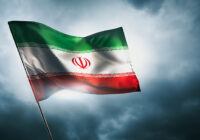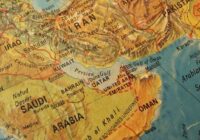As of August 12, over 746,000 have died as a result of COVID-19 worldwide, with infections topping 20 million. Some experts are talking about the beginning of de-globalization, and economists are predicting a recession worse than the Great Depression. Both American defense and intelligence communities have stated that it does not believe COVID-19 to be a biological weapon. However, considering the extensive damage already inflicted by the novel coronavirus, some actors may be considering developing such an instrument for future use. This possibility requires examining current gaps in the biological weapons non-proliferation regime.
Non-state actors represent a critical challenge in this regard. Encrypted communication channels ensure that discussions between buyers and sellers are protected from intelligence agencies, while a globalized economy means a relatively easy movement of goods and services once an agreement is made. Recognizing the factors contributing to their clandestine operations enables us to derive lessons and measures to prevent new actors from emerging and to more effectively crack down on the ones currently operating.
The Network
One of the most notorious groups to have contributed to nuclear proliferation is the Abdul Qadeer Khan Network. Abdul Qadeer Khan, a Pakistani metallurgist and nuclear scientist trained in Belgium, founded the network in the mid-1980s. The organization provided states with nuclear-related equipment, technologies and materials. Some of its clientele included Iran, North Korea and Libya. While the network’s efforts encompassed nuclear proliferation, the factors facilitating its activities apply to their biological and chemical variants.
Tracing Abdul Qadeer Khan Network’s history presents four factors that account for its long-lived operational capacity. First, Khan successfully stole centrifugal designs while working in the Netherlands in the early 1970s. Then, in 1974, after offering his services to Prime Minister Benazir Bhutto following India’s nuclear test, he departed for Pakistan.
There, Khan worked at the Pakistan Atomic Energy Commission before founding the Engineering Research Laboratory in 1976. By introducing centrifuge designs stolen from his time in the Netherlands and outmaneuvering export controls to acquire nuclear-related equipment and technologies, Khan played a critical role in Pakistan’s nuclear weapons program’s early efforts. The business contacts established while evading nuclear-related export controls constituted the core of Khan’s network, which was independent from the Pakistani government and security services. It was, effectively, a one-man show ran by Khan, who controlled all the moving parts.
As Gordon Corera describes in his book, “Shopping for Bombs: Nuclear Proliferation, Global Insecurity, and the Rise and Fall of the A.Q. Khan Network,” Pakistan encouraged Khan’s domestic nuclear proliferation efforts because Islamabad wanted a nuclear bomb. It is not hard to see why Pakistan was actively looking to build a bomb considering the repeated wars with India in 1947, 1965 and 1971. Pakistan lost more than the third India-Pakistan War: It also lost East Pakistan due to a local rebellion supported by India, which resulted in Bangladesh’s independence from Pakistan.
A globalized economy was integral to the network’s efforts. It enabled the organization to effectively circumvent established controls and regimes by presenting a façade. One way was to use a shell company within a shell company when looking to procure a piece of equipment one, two or even three stages down the technology chain of which a product is controlled. In doing so, entities operating on the network’s behest successfully concealed the intent of their purchase, with Khan eventually obtaining the desired product, albeit with some delays.
With the network up and running, Khan commercialized his efforts and operated a nuclear clearinghouse for bidders. Whether customers required designs, materials or assistance, he was willing to provide it all. And indeed provide he did, such as his supply of technical and material assistance to Libya’s nuclear weapons program throughout the 1980s and 1990s. Pakistani officials were complicit in the network’s activities too; to what extent this was official policy or individual political entrepreneurship is unclear. A letter dated 1998 and released by Khan himself states that he transferred $3 million from North Korea to Pakistani military officials in exchange for centrifuges and technical expertise that provided North Korea with uranium enrichment capabilities.
The network helped Iran too by, firstly, providing used Pakistani centrifuges in 1987 and then introducing Tehran officials to suppliers to help them develop technological competency. This was no small-scale enterprise.
Policy Recommendations
This raises the critical question of what measures states can implement to prevent future actors from procuring weapons of mass destruction, particularly when it comes to their biological variants. Three stand out from a US-centric perspective. The most immediate one is the importance of reinforcing information and reconnaissance efforts around the principal targets and suspected proliferators.
Second, states pursue nuclear weapons primarily to deter a threat, and non-state actors are more than willing to facilitate this. With its diplomatic and military might, the United States and other regional players can facilitate a resolution of these security concerns and perceptions of insecurity, thereby addressing the initial motive for pursuing weapons of mass destruction.
Finally, there is the commercial consideration. As the largest economy in the world, proliferators can expect to find all the required products in the United States. A recent prominent example is how American-based persons and companies used their local access and contacts to provide sanctioned persons and Iranian government agencies with prohibited technologies, such as high-tech microelectronics and power supplies used in military and nuclear energy systems.
The existing US sanctions regime should discourage individuals and corporations from engaging with sanctioned entities participating in clandestine weapons proliferation. Sanctions prohibit American-based entities from commercially engaging with a sanctioned person. As the case above demonstrates, violating sanctions leads to imprisonment and asset seizure. But sanctions are only an effective deterrent if non-state actors want to maintain access to the American marketplace. The size of the American nuclear black market is unclear as no systematic study has sought to measure it. However, it is present. Essentially, risk-indifferent actors undeterred by sanctions and whose guiding objective is to facilitate the acquisition of a weapon of mass destruction must simply be caught.
In contrast, risk-averse operatives hoping to maintain their operations and find comparable nuclear-related technologies and equipment in other markets can be discouraged from maintaining their illicit activities. One way would be to bring in other states and develop a joint secondary sanctions regime. If, for example, the United States and China established such a project, then an actor sanctioned by the United States would be similarly sanctioned by China and would be unable to operate in both American and Chinese markets.
There are positive and negative aspects to consider. On the one hand, it would raise the costs for risk-averse operatives, thus reducing the overall number participating in the proliferation process. On the other, it may equally push buyers and sellers to relocate to other countries entirely and deprive the US of domestic oversight. One way around this is through joint-intelligence task forces and intelligence sharing among cooperating states, economic incentives for those on the fence and stringent monitoring and surveillance for those who show no interest in surveilling clandestine actors. Cracking down on proliferation networks is a constant struggle. Whether this initiative is pursued ultimately depends on whether the United States can rely on partner states to cooperate and whether it can effectively maintain surveillance efforts beyond its borders.
The case of the Abdul Qadeer Khan Network provides valuable lessons to combat the role of non-state actors in WMD proliferation. The CIA, alongside Dutch intelligence, was closely monitoring the network’s activities and most likely shared this information with the other spy agencies comprising the Five Eyes — Australia, Canada, New Zealand and the United Kingdom. In 2004, Pakistan relented to American pressure and cracked down on Khan, forcing a public confession and placing him under house arrest. Without its linchpin, the network eroded. Now, 16 years later, the international community continues to deal with his legacy in the form of Pakistan’s, Iran’s and North Korea’s nuclear weapons capabilities.
Although the controlled substance differs between nuclear and biological WMDs, the rationale and techniques deployed are similar. While reinforcing surveillance around suspected persons and alleviating a state’s security concerns require credible intelligence and an individual or an organization to monitor, states can proactively pursue a multilateral secondary sanctions regime.
A global problem of this magnitude requires a comprehensive and global response. Concentrating resources to counteract proliferation and black market activity in any one country will simply spur non-state actors to operate in other territories. What is needed, then, is for states to pursue non-proliferation as a single, interwoven mesh to remove the prospects of a non-state actor facilitating a WMD. The international community may recover from the current COVID-19 crisis, albeit with significant costs and a substantially altered international terrain. It should do its best to avoid another such crisis, especially one manufactured intentionally.
The views expressed in this article are the author’s own and do not necessarily reflect Fair Observer’s editorial policy.
Support Fair Observer
We rely on your support for our independence, diversity and quality.
For more than 10 years, Fair Observer has been free, fair and independent. No billionaire owns us, no advertisers control us. We are a reader-supported nonprofit. Unlike many other publications, we keep our content free for readers regardless of where they live or whether they can afford to pay. We have no paywalls and no ads.
In the post-truth era of fake news, echo chambers and filter bubbles, we publish a plurality of perspectives from around the world. Anyone can publish with us, but everyone goes through a rigorous editorial process. So, you get fact-checked, well-reasoned content instead of noise.
We publish 2,500+ voices from 90+ countries. We also conduct education and training programs
on subjects ranging from digital media and journalism to writing and critical thinking. This
doesn’t come cheap. Servers, editors, trainers and web developers cost
money.
Please consider supporting us on a regular basis as a recurring donor or a
sustaining member.
Will you support FO’s journalism?
We rely on your support for our independence, diversity and quality.






